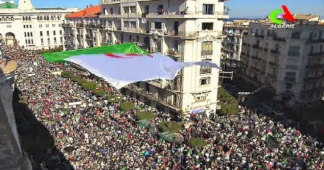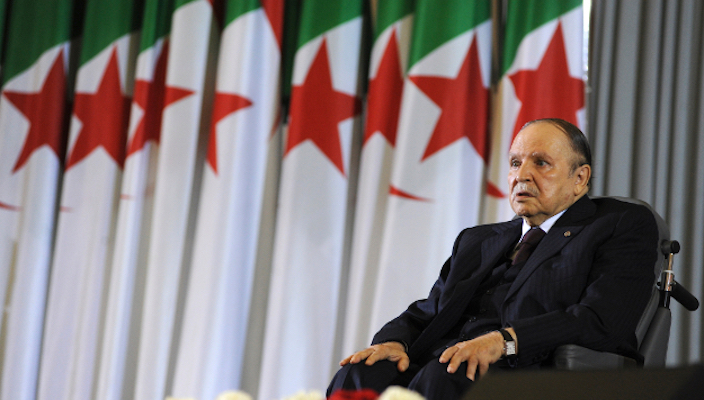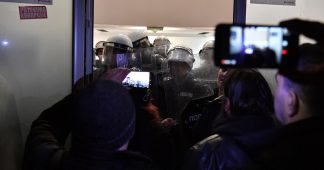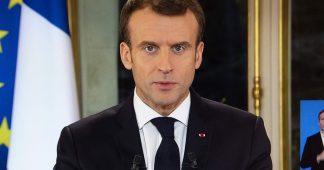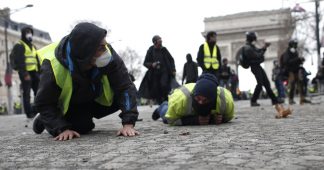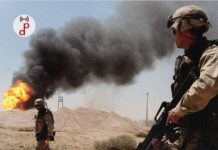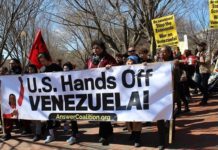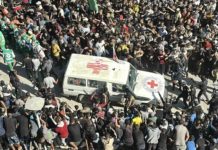Mar. 15, 2019
United World International
On March 11, Algerian President Abdelaziz Bouteflika announced that elections would be postponed and he would remain in power. The situation remains restless – now people are protesting against his decision to extend his fourth term indefinitely – on March 15, the Algerian opposition is threatening to take to the streets in new mass protests opposing Bouteflika’s 20-year rule.
What are the reasons for continued instability in Algeria, and how are they affecting Europe?
Dear @realDonaldTrump a message from Algeria.#No5thTerm #AlgeriaProtests pic.twitter.com/FioSK1dqMt
— عقبة الأيسر (@OkbaLeftHanded) March 9, 2019
What’s happening
Protests in Algeria have continued from the end of February – those demonstrating were discontent over 82-year-old President Bouteflika’s efforts to hold on to power despite his advanced age and poor health.
Against this background of mass protests, Bouteflika eventually promised to leave office, initiated the resignation of his government and carried out sweeping changes. 59-year-old Noureddine Bedoui was appointed as Prime Minister and will serve as the central figure in constructing the new government. 67-year-old Ramtane Lamamra took the chair of Deputy Prime Minister and Minister of Foreign Affairs. In addition, the President has deposed the head of the Independent High Authority for Electoral Observation, Abdelwahab Derbal.
“Algeria, freedom, democracy”
These measures have not been enough to satisfy the people. Fresh protests were held in Algeria on March 13, where students and teachers took to the streets of the nation’s capital. The central demand of the protests (which shouted slogans such as “Algeria, freedom, democracy!”) was Bouteflika’s resignation – “there is no extension of the fourth term!” and the ouster of the current ruling party “the Front of National Liberation”. Activists believe that, in postponing the elections, Bouteflika actually extended his reign and that of his ruling click.
So proud and hopeful. We are definitely not afraid anymore! #AlgeriaProtests #Algerie_manifestation #AlgerieUnieContreLeCinquiemeMandat #AlgeriaWakesUp #حراك_8مارس pic.twitter.com/Sp8A6BUMeR
— Amina Attar (@AminaAttar1) March 10, 2019
The protesters often refer to Article 102 of the Constitution to justify their demands. According to the law, if the president is seriously ill, then the chairman of parliament assumes his role, and elections are held ahead of schedule.
In any case, the opposition demands Bouteflika’s ouster and real elections. They deeply fear elections will be postponed for a year or more.
Virtual president
The country’s dissatisfaction with the economy and lack of jobs has been made worse by Bouteflika’s personal health issues. After suffering a severe stroke in 2013, he stopped appearing in public and participating in the political life of the country. Speakers had to read his declarations for him. The head of state finds it difficult to move around and give speeches and spends most of his time in foreign hospitals trying to improve his health.
His attempt to seek election for a fifth term was particularly painful after the 2016 constitutional reform when the presidency was officially limited to a maximum of two 5 year terms.
But the problem is not as much Bouteflika himself as those around him – the protesters stress that the country is de facto ruled not by the president, but by a small group of people close to him, including wealthy businessmen (in particular, the president’s brother Said, a number of high-ranking military officers and figures like Ali Haddad).
Many experts note that the government has already physically “grown old” (the average age of active politicians is over 60), and there is no talk of them making way for the younger generations. At the same time, the main asset of the protesters is their segment of politicized youth.
When the “Front for National Liberation” came to power, they were socialist in economy and “pro-Arab” in politics (this included, among other things, the Arabization of the non-Arab population like the Berbers). The problem is that, despite attempts to diversify the economy, Algeria has become dependent on the oil and gas industry. This led to the crisis of the 1980s and remains a problem to this day.
According to experts, by 2014, the export of oil and gas products accounted for two-thirds of government revenues and a third of the total GDP. For five years, the situation has not changed. The total unemployment rate is 12%, with 24% of people under 30 out of work.
#MessaliHadj! Long live the Algerian Revolution! #AlgeriaWakesUp pic.twitter.com/CLVQvnWj29
— CharleHuguenin (@CharleJHuguenin) March 10, 2019
Geopolitics: the threat of an “Arab Spring”?
Many people recall the experience of the first “Arab spring” – Bouteflika’s merit was that he managed to “put out” the fire which swept Tunisia, Egypt, Libya in a timely manner when it began to spark up in his nation. Bouteflika negotiated with the protesters and abolished the country’s state of emergency, allowed mass events, and ordered the government to raise salaries and increase social benefits.
People also remember the 1992–2002 civil war, which was brutal enough to ward off many Algerians from risking a new round of conflict.
However, critics of the authorities say that the situation today is at a stalemate, and as a result of stagnation, people are now ready to attempt to change the government despite the risks. Critics are mostly young people who have never even seen the president. Tension is growing and threatens to escalate into serious clashes and even revolution – the country’s militant youth do not intend to put up with half measures.
There is a danger Al-Qaeda oriented Islamists could take advantage of the chaos resulting from such a situation in order to resume attacks in North Africa. Al-Qaeda already published a declaration entitled “Algeria and the exit from the dark tunnel” which openly declares that they will take advantage of unrest to promote their interests. Destabilization could lead to intervention by other countries (France with Emmanuel Macron, for example, would certainly not stand aside).
@EmmanuelMacron you better stay away from the decisions about the future of Algeria, it's our country, our destiny, and the people said their word, otherwise if the situation here gets out of hand, you can say goodbye to a peaceful France.#AlgeriaWakesUp#Algeria
— Harrache Halim (@TheHarrache) March 12, 2019
As for the military factor, there is no definitive forecast since different military officers have their own opinions on what is happening in the country: Deputy Defense Minister General Ahmed Qaed Saleh supports the president, while another influential figure, Ali Gediri, has supported calls for protests.
Finally, the Kabyle people (local Berbers) who still seek autonomy may contribute to destabilization – they do not want to lose their relative freedom, remembering the long and painful experience of Arabization and the civil war.
Published at https://uwidata.com/2684-algeria-how-much-damage-could-a-north-african-arab-spring-do-to-europe/
